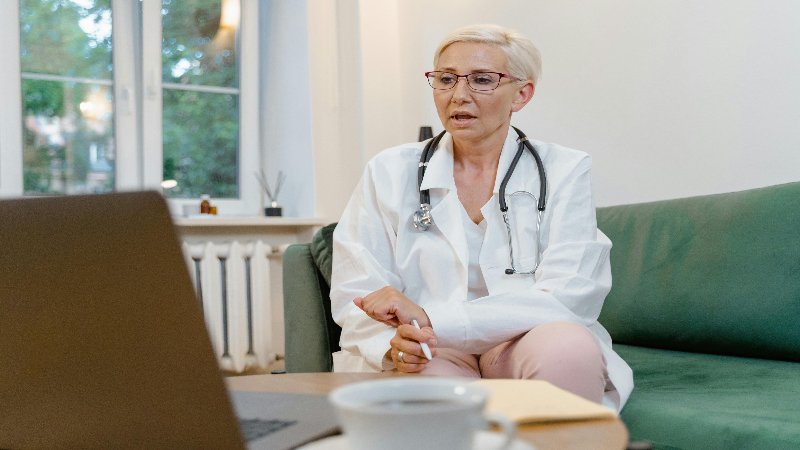Healthcare is evolving at a remarkable pace. The idea of personalized care is leading that change, focusing on each person as an individual instead of just focusing on a list of symptoms. This approach values unique health histories, lifestyles, and personal goals, helping doctors and patients work together toward lasting wellness.
In many cities, personalized care is no longer a future concept—it’s happening now. In the San Diego market, healthcare providers are using advanced tools and data to understand what every patient truly needs. This shift is creating care that feels more precise and compassionate, built on genuine understanding and connection.
1. The Meaning and Promise of Personalized Care
Personalized care means seeing patients as partners in their health journey. It moves away from rigid treatment plans and instead focuses on understanding each person’s specific circumstances. A doctor might consider lifestyle habits, environmental factors, genetic markers, and even emotional health when creating a care plan.
This approach allows patients to feel heard and respected. It also improves outcomes, since treatments are designed to fit real lives rather than textbook cases. Personalized care is not a luxury—it’s a philosophy that makes medicine more effective and meaningful.
2. Real-World Models of Personalized Care
San Diego has become one of the most active centers for healthcare innovation recently. The region’s medical community places strong emphasis on collaboration among specialists, researchers, and local clinics. Many providers are blending advanced science with a personal touch, creating care environments where patients feel seen, understood, and supported.
The area’s focus on lifestyle medicine, preventive care, and patient education has made it a testing ground for the evolving landscape of individualized healthcare.
Among these forward-thinking providers, the team at Modena Health – Allergy & Asthma San Diego takes personalized care to the next level, designing treatment plans that improve quality of life for every patient. Their work shows how San Diego’s healthcare system combines knowledge, technology, and care.
3. The Role of Technology in Modern Care
Technology has become one of the most important tools for personalization. Electronic health records provide doctors with quick access to detailed patient histories. Wearable devices track sleep, exercise, and heart activity, giving real-time feedback that helps identify patterns before they become problems.
Artificial intelligence is beginning to predict potential health risks based on large amounts of data. That means patients can receive guidance before symptoms even appear. The combination of human care and digital insight is redefining what it means to be proactive about health.
4. Genetics and the Next Frontier of Treatment
Genetic testing has opened a new window into how the body works. It allows healthcare professionals to understand how someone might respond to certain medications or treatments. This knowledge helps doctors design therapies that are both effective and safe.
For example, cancer specialists can now identify genetic markers that guide which drugs will work best for a particular tumor. Similar progress is happening in areas like allergy management, where genetic data reveals why one person reacts differently from another.
5. Empowering Patients Through Data and Education
One of the most exciting shifts in healthcare today is that patients are becoming active participants. Access to health data allows individuals to make informed decisions and track their progress over time. Apps and online dashboards supply instant visibility to important metrics, helping patients see the direct impact of their daily choices.
Education is equally essential in this process. When patients understand their conditions, they can work alongside doctors to set goals that feel realistic and motivating. This shared approach replaces confusion with clarity. It builds trust and ensures that care plans align with the patient’s lifestyle and values.
6. Integrating Mental and Physical Health
Personalized care is not limited to physical conditions. True wellness includes emotional balance and mental stability. For many patients, stress, anxiety, or depression can influence physical symptoms and slow recovery. Recognizing this connection allows healthcare providers to address both aspects together.
Modern care models are beginning to bridge the gap between mind and body. A patient might receive therapy, counseling, or mindfulness coaching alongside medical treatment. Treating emotional well-being as part of the same picture often leads to improved results. Patients tend to follow treatment plans more faithfully and recover faster.
Final Thoughts
The journey toward personalized care represents a new chapter in healthcare history. It’s a move away from generalization toward a model that honors individuality. Every patient brings a story, a background, and a set of hopes that deserve to be part of the healing process.
The rise of technology, genetics, and patient education has created a foundation for care that feels precise yet deeply personal. Challenges remain, but progress continues as healthcare leaders refine systems and expand access. The heart of personalized care lies in partnership.
It’s about patients and providers working together, supported by science, data, and compassion. The future of healthcare will not only focus on treating disease but also on nurturing wellness in every form.
See Also: How Taking Control of Your Health Changes Everything
